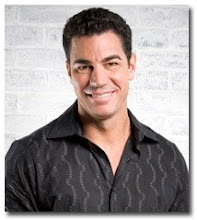Vitamins and Our Bodies
Have you ever wondered why the word 'essential' precedes the term, 'vitamins'? It’s simple. Vitamins and minerals ensure our bodies function as they were designed. Important as vitamins are, the body is unable to manufacture most on its own and must rely on outside sources to meet nutritional needs.
According to MyNutritionStore.com, vitamins are organic compounds and as such they're found naturally in many of the foods we consume. They're also available in the form of vitamin supplements. Thirteen different vitamins are needed to perform such crucial functions as helping protect against infections and disease, helping the body's metabolism, helping the body grow and helping the body remove waste.
Vitamins are a lot like building blocks. A healthy body is able to put these blocks together to create the enzymes and hormones that, among other things, control heart rate, blood pressure, glucose levels and other chemical reactions.
How Much is Enough?
The recommended daily allowance (RDA) of the various vitamins is different depending on a person's age and current state of health. Women who are pregnant for example, need a different combination of vitamins to protect the fetus against birth defects. Adult men have different requirements than adult women. Children, teenagers and the elderly all have different nutritional requirements as well.
Thinking about food as a source of fuel is helpful. Give your body the right type of fuel and it will perform at optimum capacity. Fuel it with the wrong things, and over time, performance will begin to decline.
Problems Associated with Vitamin Deficiencies
Although perhaps not noticeable at first, vitamin deficiencies can lead to serious health issues further on down the road. Few people today eat what would be considered a nutritionally-balanced diet. Many in fact, have developed some pretty poor eating habits. High fat foods, processed foods, fast food and restaurant food have taken the place of healthy foods.
Because people can't see what is going on inside the body, it's difficult to get a good understanding of the negative effects a poor diet can have on the body. Generally, it's not until the body begins putting on excess weight that the effects start to become visually noticeable. But long before the excess weight settles in, trouble is already brewing inside.
What types of problems are associated with vitamin deficiencies? Insufficient Vitamin D can cause weak or even deformed bones. Not enough Vitamin E can lead to the destruction of red blood cells. Not enough Vitamin C can cause tiredness, weakness, sore muscles and can cause gums to bleed. An overall vitamin deficiency can even lead to death.
Vitamin supplements are an effective way to fill in the nutritional gaps caused by poor eating habits. But beyond that, the only accurate way of knowing if the body is getting enough vitamins is with a blood test. If you don't think you're getting enough vitamins, you probably aren't. Do yourself a favor and find out soon.
For more information:
http://www.johnspencerellis.com/
http://www.mynutritionstore.com/diet



0 Comments:
Post a Comment
<< Home